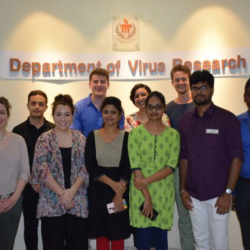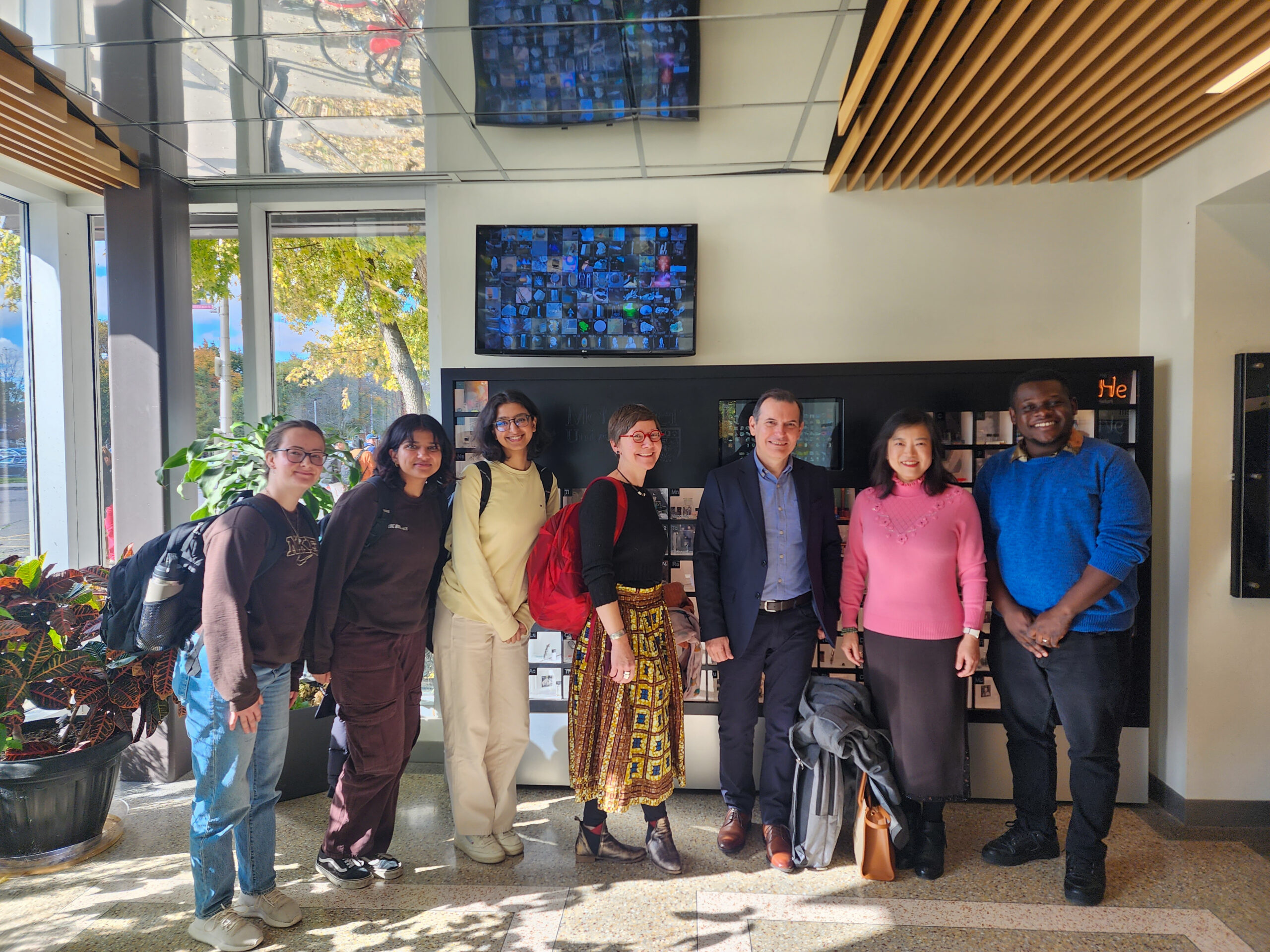Symposium day 4: Field visits, mental health and infectious disease surveillance

Symposium events got off to a fast start on Wednesday morning, as global health students and faculty headed off to their respective field visits. Each of the groups had the opportunity to observe local healthcare practices catered to a series of cluster group topics, including environmental health, occupational health, traditional health, mental health, infectious disease surveillance, reproductive and child health and One Health.
Mental health
The group had the chance to share their experience visiting the Asare & Hombelaku (Asare) school for people with mental illness conditions and disorders. Located a couple of minutes from the heart of the Manipal Academy of Higher Education (MAHE) campus, this facility is a joint effort established by MAHE and Archana Trust.

Students had the opportunity to engage in an in-depth discussion with an employee regarding institutional organization and available services, whichwas followed by a brief tour of the facility.
One individual in particular commented on the community environment within the facility, as the caretaker conducting the tour seemed to know each patient on anindividual level, and spoke very fondly of the work being done in the facility.
The overall experience was a positive one, and was able to take away some invaluable lessons from the experience.
Infectious disease surveillance
Today, this group visited the Manipal Institute of Virology. The students had an opportunity to observe and interact with the staff under the guidance of Mr. Robin. It is a BSL 2+ lab with a part of it being BSL 3. The group was oriented regarding the various projects that are currently being handled like Influenza surveillance project, acute febrile illness, Kayasanur Forest disease etc., information flow in the national surveillance system, networking and collaborations with various public and private institutes. Robin also talked about the institute’s contribution in the detection of Nipah virus during the deadly outbreak in 2018. The group agreed that the visit was quite informative and beneficial.
We asked Maastricht University student Boutaina Emrani to give her thoughts on the community visit. Here’s what she said:
“Today’s field visit to the Manipal Institute of Virology (MIV) was a very interesting experience. I was mainly impressed by the level of professionalism displayed by the department and the way that health systems in India deal with the complex logistic challenges in the context of successful infectious disease surveillance.”
Q & A with Dr. Aziza Mukhayer: Afhad University for Women
 How do you feel to be a part of the Global Health Symposium?
How do you feel to be a part of the Global Health Symposium?
I am overwhelmed. It is a great achievement for Ahfad University for Women to be a part of the Symposium. Besides our faculty, our students are able to join the Symposium and be exposed to such a new environment for learning which is quite different, with people from various countries coming and working together. It enriches the knowledge for the students as well as the faculty.
I look forward, as a representative of Ahfad University for Women, to strengthen the partnership of Global Health. As women, we should take a lead in empowering each other towards a healthy world.
Can you tell about your experience working in Global Health in Sudan?
Ahfad University started the student exchange program with Maastricht University back in 2011. Presently, we are working on having a concentration in Global Health with various modules. For example Global Health Transition, Biodiversity and Global Health Sustainability, Foundation for Change, Global Health Security and Diplomacy, and Global Health Intervention.
These modules will enable students to have innovative ideas for interventions as well as a platform for practical experience in the field.
Student Spotlight: Marwa Akhola
 Meet this Master of Nutrition and Dietetics student from the School of Health Sciences, Ahfad University for Women.
Meet this Master of Nutrition and Dietetics student from the School of Health Sciences, Ahfad University for Women.
Marwa is in the Reproductive and Child Health cluster, she visited the Sonia Clinic and Nursing Home Manipal.
I was afraid that I might not be able to contact and communicate with the people there but it was easy. I loved it since everything was understandable and the Indian staff
was very helpful and cooperative. They helped us a lot and they accepted a lot of our questions. I felt very comfortable.
I liked the way the field visit was organized and how they already knew that we were visiting, it made everything easy. They knew how to communicate with us and the tour
was helpful and informative. Everyone was willing to share information and it all went on very smoothly.
The extent of cooperation and responses from the staff were very surprising. I thought that everyone would be very busy and that they would not have the time to give us the required information. I also thought that they would not be able to answer some sensitive questions, but they actually did and they were very kind to us.
The Student Communications Committee
Student BlogRelated News
News Listing

November 12, 2024

November 5, 2024

Pollution, Power, and Protest: Unpacking Environmental Racism from Africville to Wet’suwet’en
Student Blog
October 10, 2024
